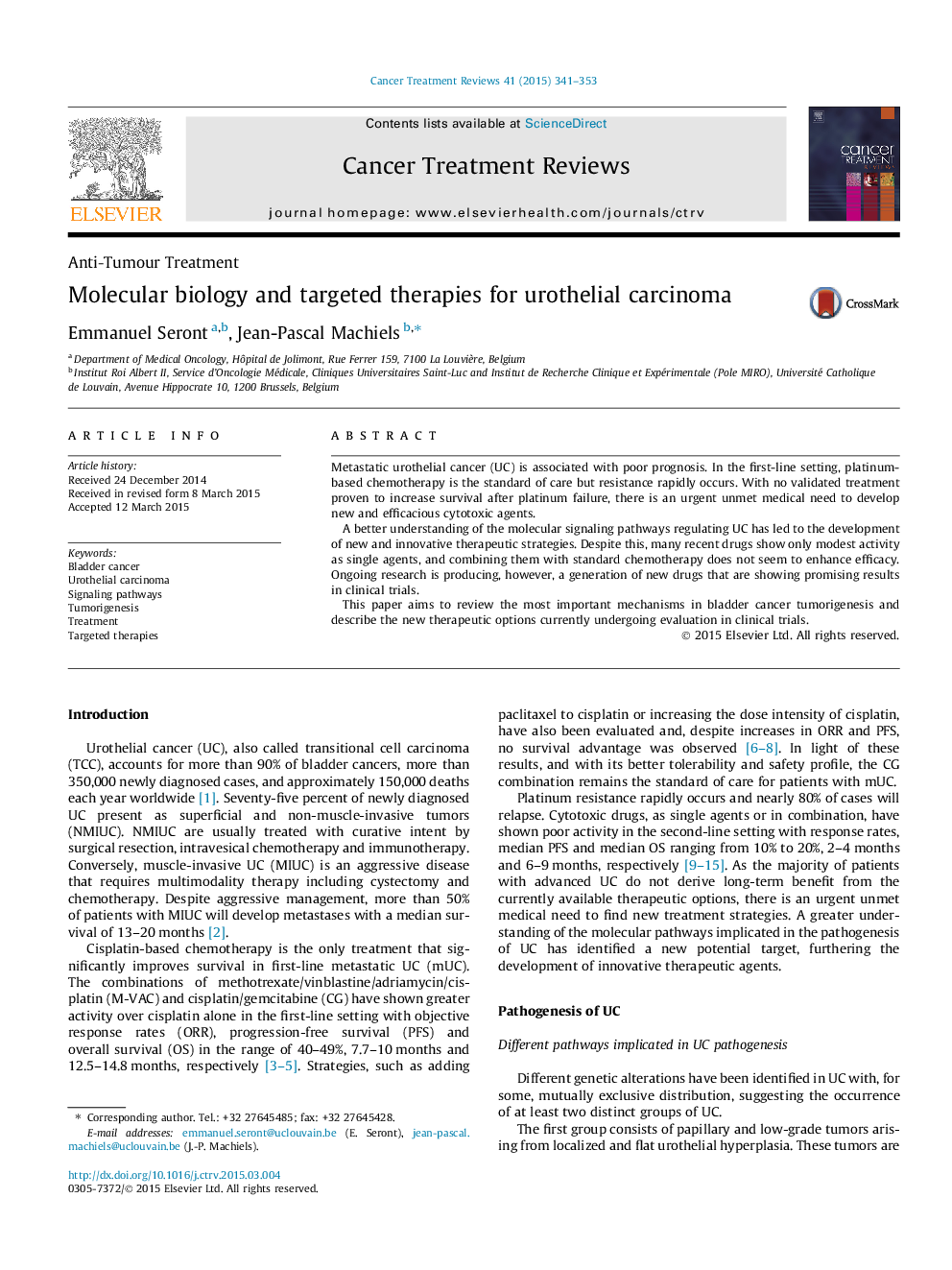| Article ID | Journal | Published Year | Pages | File Type |
|---|---|---|---|---|
| 3979802 | Cancer Treatment Reviews | 2015 | 13 Pages |
•Chemotherapeutic agents result in modest efficacy in advanced urothelial cancer.•Improved knowledge of molecular signaling pathways helps to identify new targets.•Innovative drugs are currently evaluated in clinical trials with promising results.
Metastatic urothelial cancer (UC) is associated with poor prognosis. In the first-line setting, platinum-based chemotherapy is the standard of care but resistance rapidly occurs. With no validated treatment proven to increase survival after platinum failure, there is an urgent unmet medical need to develop new and efficacious cytotoxic agents.A better understanding of the molecular signaling pathways regulating UC has led to the development of new and innovative therapeutic strategies. Despite this, many recent drugs show only modest activity as single agents, and combining them with standard chemotherapy does not seem to enhance efficacy. Ongoing research is producing, however, a generation of new drugs that are showing promising results in clinical trials.This paper aims to review the most important mechanisms in bladder cancer tumorigenesis and describe the new therapeutic options currently undergoing evaluation in clinical trials.
